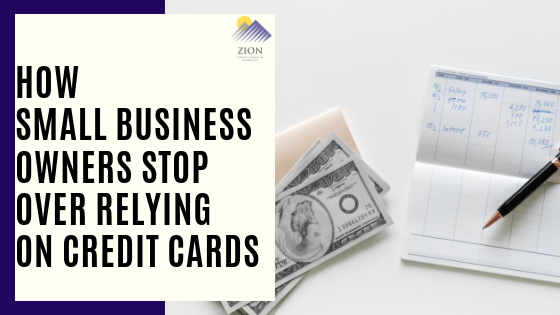The first five years of a new small business tend to be the most challenging. You are doing everything you can to make sure your business runs smoothly and is efficient, but at times you need to use your credit card to make sure an expense is paid.
There is nothing wrong with using a credit card for unexpected expenses, but when finances are tight, it is tempting to overuse your credit card to stay afloat.
If this is you, maybe this article will help you avoid relying on your credit cards and start feeling confident about your finances being covered month to month.
Why You Shouldn’t Float on Credit Cards
Credit cards can cause more harm than good when your main payment option is credit. In most cases, your interest rate fluctuates between 18% – 25% thanks to the Federal Reserve. Your odds are even worse when your credit card has a variable interest rate.
When you are working with these odds, it is important that you review all of your options before incurring excessive interest and fees.
Considering Commercial Loans
Commercial loans are a significantly better option for surviving off of credit. There are three options to help you through tight financial situations and help you surviving off-seasons.
Factoring
If you reply on a consistent customer base to ensure that you have the money to make payments, you need an option that allows you to borrow against future payments. With factoring, you will have the ability to bridge the gap between your gaining new customers and bill payments.
How this works is that your lender will look at your customer’s credit status of your clients to determine if it is reliable enough to repay the loan. The benefit to this is even if your credit isn’t perfect, it is possible to qualify for financing easily.
Bridge Loans
If your business is experiencing an offseason, you may benefit from a bridge loan. A bridge loan is a short-term loan that helps you pay for expenses during the off-season months. These loans can last anywhere from 6 months to 3 years with higher interest rates than traditional commercial loans. The positive to this option is that bridge loans are more manageable than living off of credit.
To qualify for a bridge loan, you will need collateral. Typically, the best option is non-liquid assets. When you demonstrate the ability to pay the loan, you can be approved and receive the funds you need immediately.
Tip: Only borrow what you need! Talk to your broker about your loan options.
Lines of Credit
Credit is not created equal.
In this case, Line of credit is the better option if your business is in a tight spot. If you need available funds more frequently or only need to borrow for a short time period, having a line of credit is a simple way to have funds with an even better interest rate compared to credit cards.
There are secured and unsecured options available depending on whether you have collateral. Lines of credit is a much more affordable option that will help you in a pinch.
Bottom Line
If you are experiencing a difficult financial season, there are options available to help ease the burden of operational costs. By choosing other loan options, you can avoid high-interest rates and the danger of closing your business.
If you are unsure where to start, we recommend scheduling a consultation with a commercial loan broker who can help.
Thankfully, we are here to help you make the right choice. Contact us today to discuss your options.
Keith McLaurin | Licensed Commercial Broker ID#01190109 / NMLS#1209195


Recent Comments